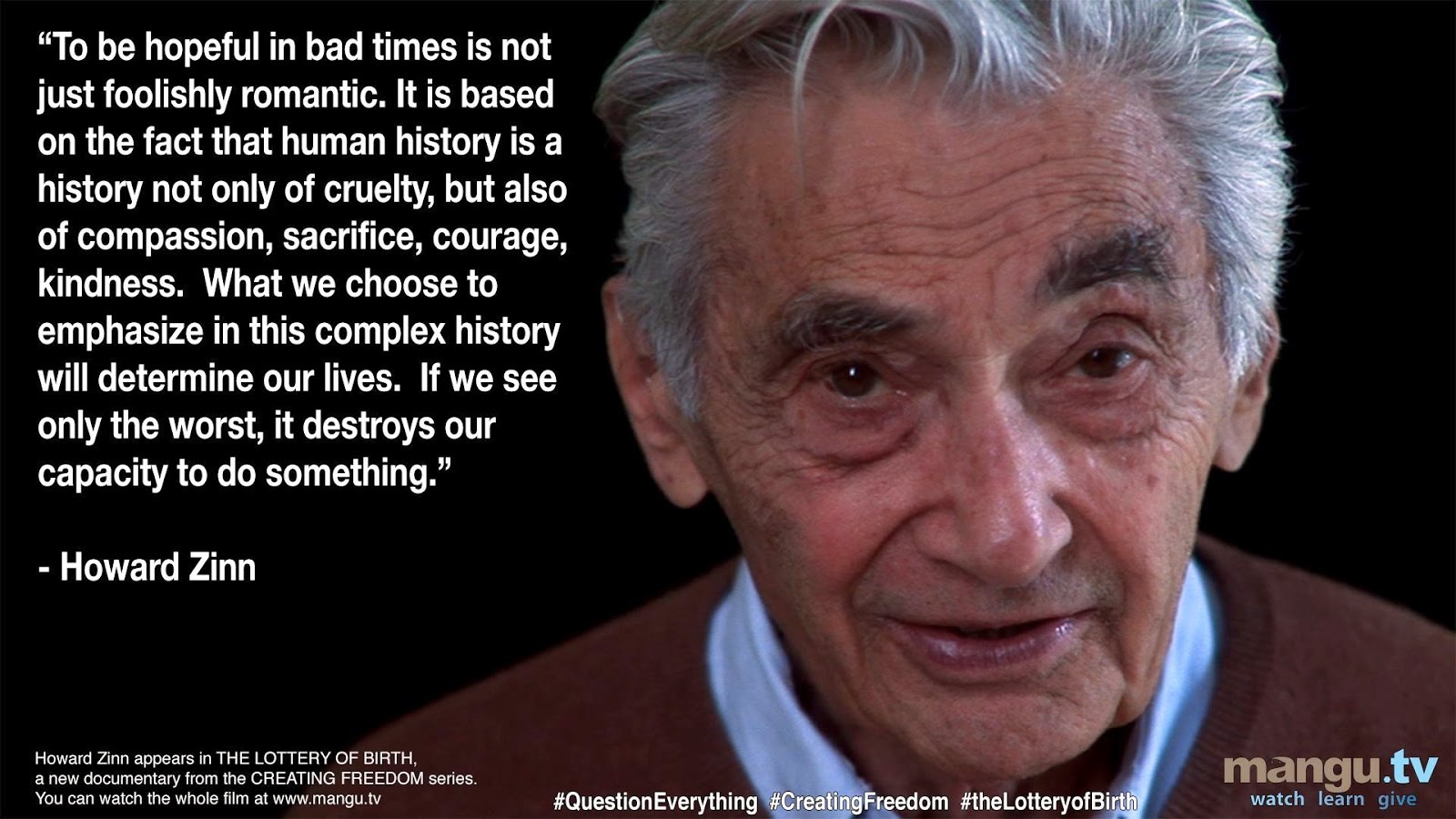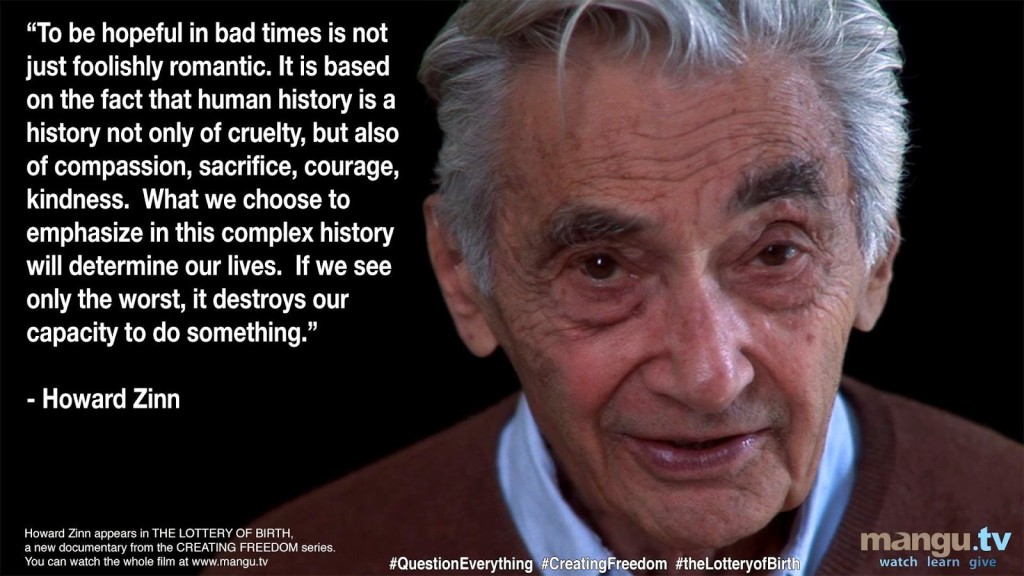Peter Esterhazy wrote, «History belongs to the victors, legends to the people, fantasy to literature,» but in this Information Age, control over official accounts has been somewhat equalized by instant contact, citizen journalism, and more equitable access to education. Our next production, American Night: the Ballad of Juan José, takes us through the house of mirrors where our nation’s history, legends and fantasies have made their home, using as our guide a text as controversial as it has been influential: A People’s History of the United States.
Published in 1980 by US historian and political scientist Howard Zinn, APHUS remains among the non-fiction best-sellers, and has received multiple awards (and was runner up for the National Book Award) despite being mired in controversy from the beginning. Although criticism is not unwarranted, a great deal of the negative reaction may be due to Zinn’s vision rather than the book’s contents. This point of view is perhaps summed up by the author’s statement «My hero is not Theodore Roosevelt, who loved war and congratulated a general after a massacre of Filipino villagers at the turn of the century, but Mark Twain, who denounced the massacre and satirized imperialism.»
The recent conflict over the U.S. History Advanced Placement curriculum
mirrors the mounting opposition Zinn’s work faced, even after his death, and it illustrates the larger issue of how and why our past is recorded and
taught. As new standards were announced, conservatives sought to cut or revise sections that threatened notions of American exceptionalism. APHUS continues to be reviled for presenting history «through
the eyes of the common people rather than by glamorizing and extolling the lives
of political and economic elites.»
A People’s History of the United States was not new or unique in bringing the unsung heroes of history to the forefront, but it is a defining example of what we now call historical non-fiction. It followed on progress made through the 60s and 70s as social groups became liberated and took ownership of their own narratives. Zinn hoped it would launch a «quiet revolution» as people questioned assumptions, simplifications, and what some would term «white lies» in our vision of our past. But even Zinn acknowledged and agreed with the simplest criticism lobbed against APHUS: it was not intended as an objective work. Although recognized in Academia, Zinn was open about his personal activism, even titling his autobiography You Can’t Be Neutral on a Moving Train.
More than two decades and innumerable printings and translations later, A People’s History of the United States remains pertinent and vibrant. Its iconoclastic perspective on the powers that be is used a fundamental text by the internet project History Is A Weapon (where you can read it online), and of course as a basis for Richard Montoya’s American Night: the Ballad of Juan José. In the end, perhaps Zinn’s most objective contribution was that,
as Prof. Christopher Phelps wrote, «he sold two-million copies of a work of history in a culture that is
increasingly unwilling to read and, consequently, unable to imagine its
past very well.»
Don’t miss our Portland premiere of American Night: the Ballad of Juan José, and join us as we share, learn and laugh at our own great and not-so-great history!


